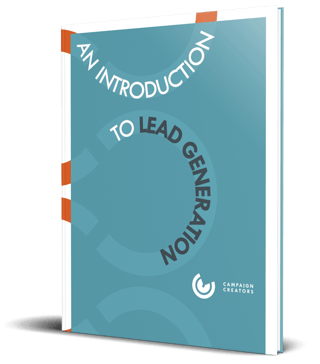Talent management is one of the pillars of current Human Resources policy in large companies. In recent years, attention has been paid to this aspect within the company, as a sure value that helps an organisation to achieve its objectives. This is one of the trends that is being reinforced in 2020, underpinned by a changing scenario which demands creativity and innovation. Here is the key for a company to be more competitive and move into the future. In this post, we explain more about this and about other trends that mark the beginning of a new era.
New methods of recruitment
Recruitment methods are constantly changing over time. Whilst some people will maintain that it has all been done before, in the current era, everything evolves at great speed. It is true that many traditional methods of selection remain, such as job fairs or selection through specialised websites. It is interesting to describe the latter as a traditional method, yet this has already been an active means of selection for over 20 years. So what's new? Below, we present some of the examples that are going strong.- Inbound recruiting:this system follows the path of Inbound Marketing, which is gaining strength as a technique on the rise in its sector. In the area of recruitment, it is also about generating engagement, in this case with potential new additions to the company. The tools of this technique include publicising the business culture, and ensuring that job offers gain visibility.
- Big Data: the possibilities offered in ICT today are endless, and this is not limited to transferring the hundreds of CVs that previously crowded the table of the HR department to cloud storage. On the contrary, it allows a large number of profiles to be filtered far more easily, resulting in a far more refined search.
- MatchMaking: this technology stems from use in dating applications, and is now being adopted by many emerging platforms that are using it to connect companies with top talent. A new system that is perfectly aligned with the times and to the mentality of Generation Z.
The evolution of the interview process
The approach to conducting an interview varies depending on many factors, but there are points in common shared by many large companies that highlight a new direction for recruitment processes. These are some of the keys approaches to keep sight of:- Gamification: the term refers to the possibility of using the logic and dynamics of a game in other contexts. In this case, it consists of using different recreational environments in recruitment processes. From the traditional role-play scenario to video games or various competitions, the idea is to find different ways of seeing young talent in action.
- Group interviews: the possibility of seeing how somebody acts in a social context is golden for any HR department. Whilst it is possible to rehearse the answers and portray a desired persona in an individual interview, true to life characteristics are far more likely to be revealed in a group setting. For any HR professional, the group interview is a great source of information. Aspects such as leadership and communication skills can be assessed in a relatively simple way: social skills, persuasion skills, displays of empathy, and so on.
- Unstructured interviews: a new twist on the traditional tried and tested formula. Anyone can search online for frequently asked job interview questions and get a fairly realistic picture of the well-known process. Moving away from this well-trodden path involves a creative and imaginative approach to find new ways of addressing the candidate which they may not have been expecting. If instead of being asked the usual questions, a candidate is given time to explain, they will provide far more insightful feedback.
The focus of an interview should be on finding the answers we need, ascertaining what truly contributes value and gathering relevant details on whether or not the person in front of us meets the desired profile.
The most valued aspects of an interview in 2020
If we look at the latest studies on the most valued aspects in candidates, one term sums it up perfectly: soft skills. These personal characteristics, gifts, and abilities can contribute the most in the world of work, far beyond any accredited training.
Some of the most demanded of these soft skills include an aptitude for teamwork, communication skills, creativity, or the ability to resolve conflicts, to name a few. Increasingly, progress is being made towards a model that no longer places maximum value on qualifications and recognises that not everything can be quantified on a certificate.
In today's workplace, it is vitally important to have professionals who can adapt to change, take initiative, display creativity, excellent communication skills and the ability to innovate. That is true human capital, although a solid training base also remains important.

Designing an optimal selection process
The keys to an optimal selection process must contemplate some of the aspects already mentioned, which can be summarised in three fundamental aspects:
1. Knowing these new recruitment methods and how to apply them. If we stay anchored in the traditional process of publishing an advertisement on a job website and waiting for applications, we will be continuing to act in the same way as always. Only the medium through which the CVs are sent changes, the process is essentially unchanged. Going one step further implies a high technical knowledge, and a possible requirement to incorporating new profiles in the HR department, such as experts in Big Data or social networks, among others. Only in this way will it be possible to attract top talent, the profiles that can really help the company to continue growing.
2. Conducting innovative interviews that provide valuable information. Everything that connects with millennials and the younger generations helps to discover talented minds, full of good ideas and much to say. From gamification to inboud recruiting or MatchMaking, there are many possibilities when designing new formulas for a quality selective process. In addition, it never hurts to keep up to date with what is done in other countries, to learn about new systems and selection methods.
3. Focusing the interview on the most demanded skills in the sector. If we ask the same questions that have been asked for decades, we are likely to get very similar answers. We must think about what we really want to know. It is not only the knowledge and skills required in the sector, but also soft skills that can make a difference in a company today. Creativity, the ability to innovate, communicate and to resolve conflict, as well as to be proactive, display initiative and simply, to be a 'people person'.



